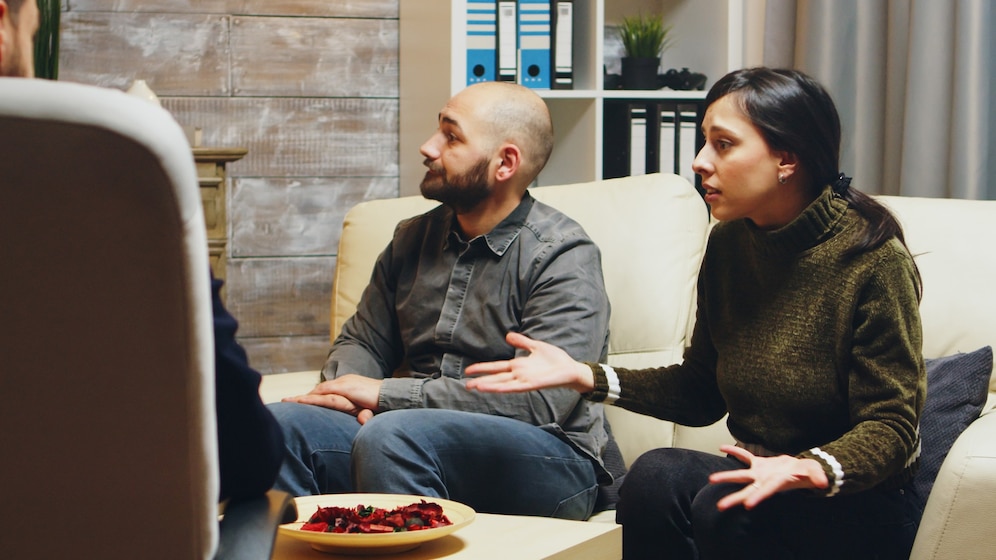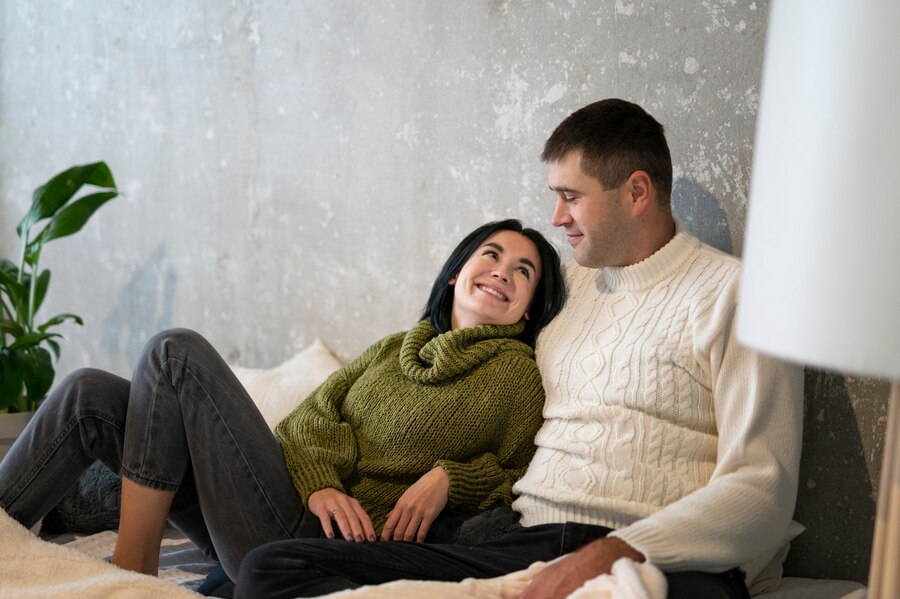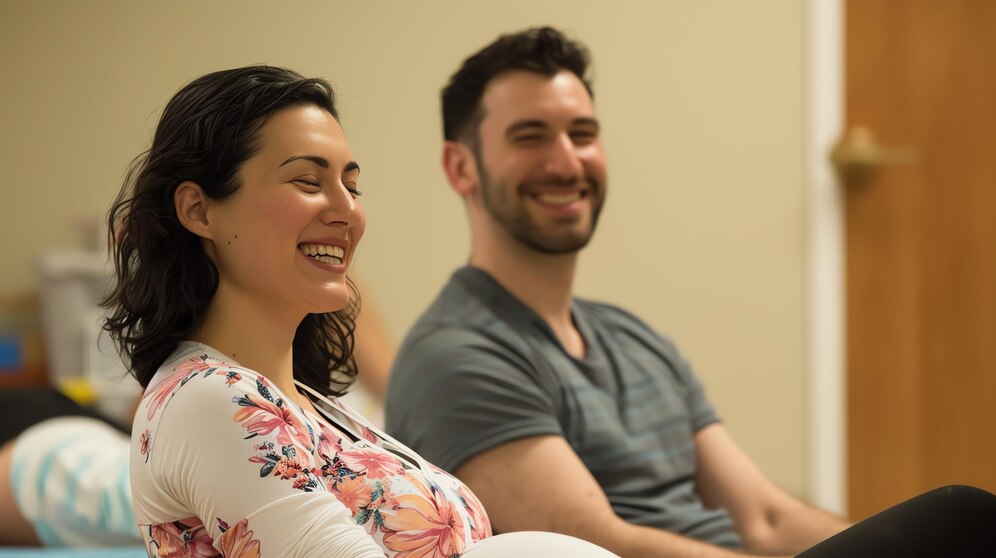Addiction can be a profound and isolating experience, not just for individuals but for couples as well. When both partners are grappling with substance abuse, it can strain even the strongest of relationships. However, the journey to sobriety doesn’t have to be a solitary path. Couples rehabs are emerging as a transformative solution that not only addresses individual recovery but also nurtures the relationship, allowing both partners to heal together. This unique approach recognizes the intertwined nature of addiction in couples and offers a comprehensive program designed to rebuild and strengthen relationships while fostering lasting sobriety.
In this article, we will delve into the intricacies of couples rehabs, exploring how these specialized programs work, the benefits they offer, and the key components that make them effective. We will also discuss the challenges couples face on their road to recovery and how these programs equip them with the tools to overcome these obstacles. By the end of this article, you will have a deeper understanding of how couples rehabs can be a beacon of hope for those seeking to reclaim their lives and relationships from the grip of addiction.
I. Understanding Couples Rehab Programs
A. Definition and Purpose
Couples rehab programs are specialized treatment plans designed to help partners who are struggling with substance abuse issues. Unlike individual rehab programs, these programs focus on the unique dynamics of a relationship, aiming to heal both individuals and their partnership simultaneously. The primary purpose of couples rehab is to provide a supportive environment where both partners can work towards sobriety, develop healthier relationship skills, and ultimately rebuild their lives together. This integrated approach acknowledges that addiction not only affects the individual but can also strain and damage the relationship. By addressing these issues collectively, couples rehab aims to foster mutual understanding, support, and long-term recovery.
B. Benefits of Couples Therapy
The benefits of couples therapy in the context of rehab are manifold. First, it offers a dual-support system where both partners are motivated to stay committed to recovery, knowing that their significant other is sharing the journey. This shared commitment can significantly increase the chances of sustained sobriety for both individuals. Additionally, couples therapy addresses co-dependency issues that are often present in relationships affected by addiction. By tackling these patterns, couples can learn healthier ways to interact and support each other, which is crucial for maintaining a sober lifestyle. Moreover, therapy sessions provide a safe space to address past traumas, rebuild trust, and improve communication skills, all of which are vital for a healthy relationship and successful recovery.
C. Types of Programs Available
Couples rehab programs come in various forms to cater to the diverse needs of different relationships and levels of addiction. Inpatient programs offer a structured and immersive environment where couples can focus entirely on their recovery without the distractions of daily life. These programs typically include medical detox, intensive therapy sessions, and a range of activities designed to promote physical and emotional well-being. Outpatient programs, on the other hand, provide more flexibility, allowing couples to attend therapy sessions and support groups while continuing to meet their daily responsibilities.
There are also specialized programs that focus on specific types of addiction, such as alcohol, opioids, or prescription drugs, providing targeted treatment plans to address the unique challenges associated with each substance. Additionally, some programs incorporate holistic therapies, such as yoga, meditation, and art therapy, to complement traditional treatment methods and promote overall wellness.
Understanding the framework and benefits of couples rehab programs is essential for those considering this path to recovery. By offering a comprehensive approach that addresses both individual and relational aspects of addiction, these programs provide a solid foundation for lasting sobriety and a healthier, more fulfilling relationship.
II. Key Components of Couples Rehabs
When embarking on the journey of sobriety as a couple, it is essential to understand the key components that make couples rehab programs uniquely effective. These components are meticulously designed to address the complex dynamics of relationships while tackling substance abuse issues. Here, we delve into the critical aspects of Couples rehabs that pave the way for successful recovery.
A. Detoxification Process
The detoxification process is the first and often the most physically challenging step in the rehab journey. For couples, undergoing detox together can provide mutual support and encouragement, making the experience slightly more bearable. During detox, medical professionals monitor individuals to ensure their safety as their bodies rid themselves of harmful substances. Couples rehabs offer a structured environment where both partners can undergo detox simultaneously, facilitating a shared understanding of the physical and emotional challenges involved. This phase sets the foundation for the subsequent stages of recovery, ensuring that both individuals start their journey with a clean slate.
B. Counseling and Therapy Sessions
Counseling and therapy are the cornerstones of any successful rehab program, and Couples rehabs are no exception. These sessions are tailored to address both individual and relationship issues, providing a comprehensive approach to recovery. Individual therapy allows each partner to explore their personal struggles with addiction, while couples therapy focuses on repairing and strengthening the relationship. Therapists employ various evidence-based techniques, such as Cognitive Behavioral Therapy (CBT) and Emotionally Focused Therapy (EFT), to help couples develop healthier communication patterns, resolve conflicts, and rebuild trust. By addressing both personal and relational aspects, couples rehabs ensure a holistic approach to healing.
C. Support Groups and Activities
Support groups and activities play a crucial role in the recovery process, offering couples a sense of community and shared experience. In couples rehabs, participants have the opportunity to join group therapy sessions where they can interact with other couples facing similar challenges. These support groups provide a platform for sharing stories, offering encouragement, and learning from others’ experiences. Additionally, engaging in group activities such as yoga, meditation, and recreational outings can help couples rediscover joy and build a sober lifestyle together. These activities not only promote physical well-being but also foster emotional connection and mutual support, essential for long-term sobriety.
In summary, the key components of couples rehabs—detoxification, counseling and therapy sessions, and support groups and activities—are intricately designed to address both individual and relational aspects of recovery. By focusing on these critical elements, couples can embark on a transformative journey toward sobriety, fortified by mutual support and a deeper understanding of their relationship dynamics.

III. Challenges and Solutions
Embarking on the journey to sobriety as a couple can be incredibly rewarding, but it also presents a unique set of challenges. Understanding these challenges and knowing how to address them can significantly enhance the chances of long-term recovery and personal growth. Here are some common obstacles couples might face in rehab and strategies for overcoming them:
A. Dealing with Relapse
Challenge: Relapse is a common part of the recovery process, and it can be particularly complex for couples. If one partner relapses, it can trigger a series of emotional and psychological reactions in both individuals, potentially jeopardizing the progress they have made together.
Solutions:
- Open Communication: Encourage honest and open communication about cravings, triggers, and setbacks. Transparency can help both partners support each other more effectively.
- Relapse Prevention Plans: Develop a comprehensive relapse prevention plan that includes coping strategies, emergency contacts, and steps to take if a relapse occurs.
- Professional Support: Ensure continuous access to professional support, such as counselors and therapists, who can provide guidance and intervention if a relapse happens.
B. Managing Emotional Triggers
Challenge: Emotional triggers such as stress, anger, and unresolved conflicts can easily lead to substance use if not properly managed. Couples may have shared or individual triggers that need to be addressed.
Solutions:
- Therapeutic Techniques: Utilize therapeutic methods like Cognitive Behavioral Therapy (CBT) to identify and manage emotional triggers. Learning to reframe negative thoughts and behaviors can be immensely beneficial.
- Mindfulness and Relaxation: Incorporate mindfulness practices and relaxation techniques into daily routines to help manage stress and emotional upheaval.
- Conflict Resolution Skills: Equip couples with conflict resolution skills through therapy sessions. Learning how to effectively resolve disagreements can reduce emotional triggers and enhance relationship stability.
C. Building a Sober Support Network
Challenge: Establishing a supportive network is crucial for recovery, but couples may find it challenging to build and maintain connections with others who understand their unique situation.
Solutions:
- Support Groups: Participate in support groups specifically designed for couples in recovery. These groups provide a safe space to share experiences and gain insights from others facing similar challenges.
- Community Involvement: Engage in community activities and sober events that encourage socialization in a substance-free environment. Building connections outside of the rehab setting can provide additional layers of support.
- Family and Friends: Involve trusted family members and friends in the recovery process. Educating them about addiction and involving them in therapy sessions can create a broader support network.
By proactively addressing these challenges with effective strategies, couples can strengthen their commitment to sobriety and foster a relationship built on mutual support and understanding. The path to recovery is undoubtedly challenging, but with the right tools and resources, couples can overcome obstacles and achieve lasting sobriety together.
IV. Walking the Path to Sobriety Together at Couples Rehabs
Embarking on the journey to sobriety is a formidable challenge, but navigating it with a partner can offer unique and profound benefits. Couples rehabs provide a specialized, transformative approach that not only addresses individual addiction issues but also strengthens the relationship as a whole. By participating in these programs, couples can rediscover trust, rebuild emotional connections, and develop healthier coping mechanisms.
Understanding the multifaceted nature of couples rehab programs is crucial. These programs offer a comprehensive array of services, including detoxification, personalized counseling, and supportive group activities. Each component is designed to treat the physical, emotional, and psychological aspects of addiction, ensuring a holistic recovery process.
However, the path to sobriety is not without its challenges. Issues such as relapse, emotional triggers, and the need for a strong support network can pose significant hurdles. Yet, with the right strategies and support systems in place, couples can overcome these obstacles. The collaborative nature of couples rehabs means that partners learn to support each other, fostering resilience and mutual accountability.
In conclusion, couples rehabs represent a beacon of hope for those seeking sobriety within the context of their relationships. These programs not only facilitate individual recovery but also pave the way for stronger, more fulfilling partnerships. Walking the path to sobriety together can transform lives, providing a foundation for lasting recovery and a brighter, healthier future

FAQ 1: What makes Couples Rehabs’ transformative programs unique for couples seeking sobriety together?
Answer: Couples Rehabs’ transformative programs are unique in their focus on providing comprehensive, integrated treatment for couples facing substance abuse challenges, offering a supportive environment where both partners can address their individual needs while strengthening their relationship.
FAQ 2: How do Couples Rehabs’ programs support couples in walking the path to sobriety together?
Answer: Couples Rehabs’ programs support couples in walking the path to sobriety together by offering specialized couples therapy, dual diagnosis treatment, and personalized care plans that address the complexities of substance abuse within relationships, fostering mutual support and recovery.
FAQ 3: What role does mutual support play in Couples Rehabs’ transformative programs for couples?
Answer: Mutual support is a cornerstone of Couples Rehabs’ transformative programs, providing couples with the opportunity to navigate their journey to sobriety together, build healthy communication skills, and strengthen their bond as they work towards sustainable recovery.
FAQ 4: How does Couples Rehabs’ approach to transformative programs benefit couples seeking sobriety together?
Answer: Couples Rehabs’ approach to transformative programs benefits couples seeking sobriety together by addressing the unique dynamics of addiction within relationships, fostering open communication, and empowering couples to heal and grow together through evidence-based therapies and support.
FAQ 5: Can Couples Rehabs’ transformative programs accommodate different substance abuse challenges faced by couples?
Answer: Yes, Couples Rehabs’ transformative programs are designed to accommodate different substance abuse challenges faced by couples, providing tailored treatment for various substances and addressing co-occurring mental health concerns within the context of the couple’s relationship.
FAQ 6: How does Couples Rehabs’ supportive environment contribute to the transformative journey of couples in sobriety?
Answer: Couples Rehabs’ supportive environment contributes to the transformative journey of couples in sobriety by fostering a safe, non-judgmental space where couples can explore their challenges, celebrate their progress, and receive guidance from experienced professionals dedicated to their collective well-being.
FAQ 7: What types of therapies are integrated into Couples Rehabs’ transformative programs for couples?
Answer: Couples Rehabs’ transformative programs for couples integrate a range of evidence-based therapies, including couples therapy, individual counseling, experiential therapies, and holistic approaches, tailored to address the unique needs and goals of each couple on their path to sobriety.
FAQ 8: How can couples begin their transformative journey to sobriety together at Couples Rehabs?
Answer: Couples can begin their transformative journey to sobriety together at Couples Rehabs by reaching out for a confidential consultation, where they will receive personalized guidance and support to embark on a transformative program that addresses their substance abuse challenges within the context of their relationship.
FAQ 9: In what ways does Couples Rehabs’ transformative programs empower couples to build a sober, fulfilling future together?
Answer: Couples Rehabs’ transformative programs empower couples to build a sober, fulfilling future together by equipping them with the tools to overcome substance abuse challenges, rebuild trust, and create a strong foundation for lasting recovery and a healthy, supportive relationship.
FAQ 10: How does Couples Rehabs’ commitment to transformative programs reflect its dedication to helping couples walk the path to sobriety together?
Answer: Couples Rehabs’ commitment to transformative programs reflects its dedication to helping couples walk the path to sobriety together through its comprehensive, compassionate, and evidence-based approach that honors the unique journey of each couple towards mutual healing and recovery.





















Recent Comments